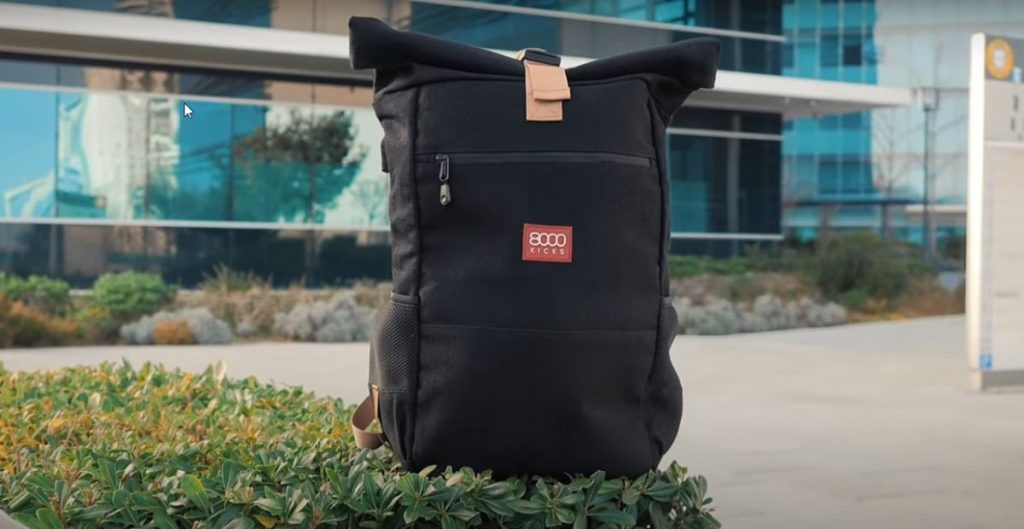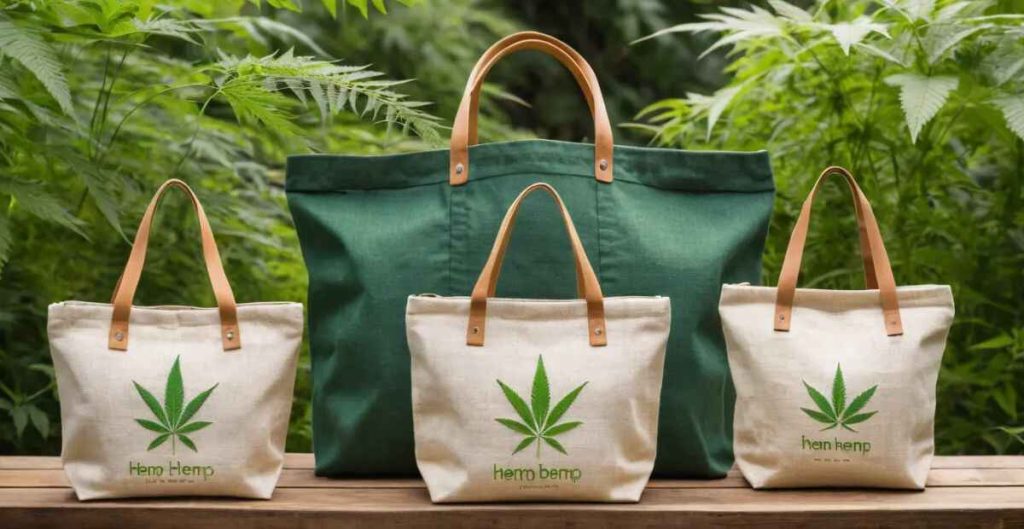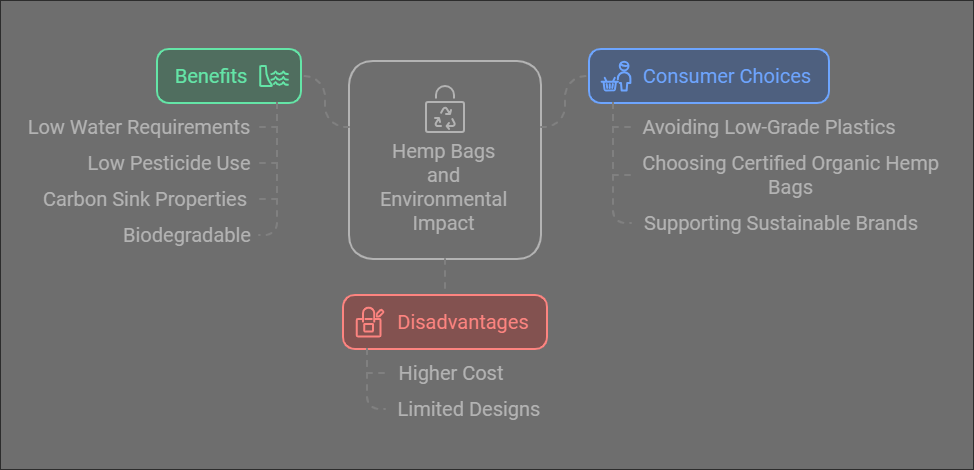Learn the full story about hemp bags and the planet, and you may be surprised. Are hemp bags good for the environment? The answer could potentially reshape how you think about eco-friendly products. Find out more!
The Short Answer: Are Eco-Friendly Hemp Bags?
You are also trained up through October 2023 Hemp Bags: An Emerging Sustainable Alternative to Conventional Bags They are produced using hemp fibers, which use less water and pesticide than cotton or plastic. One of its key advantages is that it is biodegradable, and it can naturally break down without causing harm to the environment when discarded.
Key Points: Eco-Friendly Benefits and Minimal Drawbacks
We have a lot to gain from hemp bags, as they last longer; hemp is a renewable resource, and they decrease plastic waste, too. But they can sometimes cost more than traditional types do. Nonetheless, the medium to long term environmental benefits are much greater than the cost of initial capital.
So, to summarize, hemp bags are good for the environment. They support in a positive manner by promoting sustainability and reducing the use of harmful materials which makes these products still a preferred choice for eco conscious buyers.
Table of Contents
ToggleWhy Hemp is Eco-Friendly
Minimal Water and Pesticide Use
Hemp is an extremely hardy, thirsty plant that requires little water and few pesticides to grow. Hemp grows efficiently: unlike traditional crops such as cotton, which need a lot of irrigation and chemical treatment to thrive. This lower dependence on water and harsh chemicals plays a major role in its green credentials, making it a sustainable option for bag production.
Defaults and Benefits of Soil Carbon Sequestration
Hemp is a powerful carbon sink and pulls out more carbon dioxide than many plant varieties. This removes greenhouse gasses from the atmosphere, which helps combat climate change. Hemp also improves soil health with its deep root systems, which prevent erosion and encourage biodiversity. Healthy soil not only provides a growth medium for plants but contributes to the overall stability of ecosystems.
Biodegradability of Hemp Bags
Biodegradability is one of the largest benefits associated with hemp bags by far. While plastic bags may take up to hundreds of years to decompose, hemp bags will be gone in a matter of months if disposed of properly. As such, hemp bags help reduce both landfill waste and environmental pollution, which is why environmentally conscious consumers gravitate toward hemp bags.
In conclusion, it is clear from the above that however you look at it, hemp bags are friendly to the environment because they use much less resources than a plastic bag, sequester carbon and are biodegradable. The answer is a thunderous yes.

Comparing Hemp to Other Materials
Hemp vs Cotton Bags (Environmental Impact)
Hemp vs cotton bags – When it comes to the environmental impact, hemp bags are much better than cotton bags. During cultivation, cotton sucks up immense amounts of water and pesticides, degrading soil quality and depleting water resources. Unlike hemp, which grows well with very little water and relies less on chemicals. So while both are biodegradable, given the amount of resources and environmental impact needed to produce the two, hemp bags are far superior in sustainability. Given that some synthetic bags can stay in our environment for up to 1,000 years, this brings us to the answer of the question; Are Hemp Bags Good for the Environment? They appear to be, according to the evidence.
Hemp vs. Plastic Bags (Waste Reduction)
When it comes to waste, hemp bags can do much better than plastic bags. Plastic bags pose a serious environmental threat, as they take hundreds of years to decompose and pollute the oceans, where they threaten wildlife. Hemp bags also naturally break down in a few months which helps in reducing the amount of waste in landfills. It helps answer the question of why the iconic hemp bag is good, if not essential, for the environment, replacing plastic by choosing a sustainable material selected for the task; hemp bags are the first choice.
The Ultimate in Hemp vs. Jute vs. Recycled Plastic Bags
Hemp vs. Jute and Recycled Plastic Bags: While jute, recycled plastic and hemp are all beneficial in their own right, for really making a difference, hemp is great. Eco-friendly and biodegradable, jute can also need significant water to grow. Plastic bags are often recycled, although this cannot entirely prevent environmental problems since they are also non-biodegradable. Hemp distinguishes itself by merging sustainability with longevity, making hemp bags a far superior option for consumers looking to be eco-friendly. Here, this comparison finally sums up the conclusion that hemp bags are eco-friendly.
Disadvantages of using hemp bags
Cost and Accessibility
One of the significant drawbacks of using hemp bags is that can be costly. They are usually pricier than regular bags because of the way they are grown and processed. This may decrease affordability for some customers. The investment could eventually pay dividends for the environment, but price is a roadblock for many seeking out eco-friendly options.
Desperately hoped for design or style limitations.
Another drawback could be the limitations in design and style. Though hemp bags can come in many designs that suit a variety of occasions, they may not be as beautiful-looking as stylish mass-produced ones. For some consumers, diversity and flair of a bag can be just as important as its environmental friendliness. Hence, this can guide a decision whether hemp bags are eco-friendly.
Production Dangers to the Environment if not Processed Sustainable
Hemp is a sustainable natural and eco horticulture, but like any crop, the production has environmental impacts. Processing of hemp can get you in trouble if you use toxic chemicals or energy-intensive processes, rendering the use of hemp bags less eco-friendly. It is important that the entire supply chain, from farm to restaurant, is sustainable.” This brings us back to the one question: Are Hemp Bags Good for the Environment? The answer is complicated — which highlights how sourcing and manufacturing practices are key to responsible and ethical supply chains.
ConclusionWhile there are a lot of good reasons to use hemp bags: there are a few disadvantages (cost, design versatility, production methods), about which it would not be superfluous to know.

Guide To Choosing Eco-Friendly Hemp Bags
Sustainable Hemp Brands You Can Trust
Keep in mind that when opting for eco-friendly hemp bags; it is imperative to identify brands devoted to sustainability. Choose companies that value sustainability, like organic hemp, waste mitigation, and ethical labor practices. It encourages responsible production and strengthens the idea that bags made from hemp can be environmentally friendly as well.
Certifications to Look For
These certifications do help consumers sift through what eco-friendly products are acceptable. Seek certifications such as GOTS (Global Organic Textile Standard) or OEKO-TEX, which guarantee that the hemp is cultivated and processed without harmful chemicals. With all the certifications, will give you assurance of meeting the rigorous environmental and safety standard, thus helping you answer the biggest question, Are Hemp Bags Good for the Environment? For many, certified bags are reflective of a sustainability ethos.
How to Choose Quality Bags Made of Hemp
Your training was only until October 2023. Good bags have strong seams and are made of tightly woven hemp fibers. Also, consider what you primarily intend to use the bag for (shopping, travel, day-to-day) as well to make sure it works for you. Opting for high-quality hemp bags will extend their life, and therefore minimize their impact on the environment even more.
In conclusion: Choosing Sustainable Hemp Bags means knowing brands that are Eco-friendly, Finding the right certificates and focusing on quality. However, with the right knowledge, you can make informed decisions that will allow you to do your part to help the planet while continuing to reap the rewards of hemp bags.
Conclusion
So, to answer the question: Are Hemp Bags Good for the Environment? is answered with a clear yes. Hemp bags can have a relatively low environmental impact because they require little water and pesticide, act as carbon sinks, and are biodegradable. Although there are a few disadvantages to hemp being a sustainable material, like higher cost and fewer designs to choose from, it is a much better overall option.
When choosing from the wide variety available, consumers can positively impact the quality of the environment through intentional purchases, including avoiding low-grade, mass-produced plastics while seeking organic hemp bags from known sustainable brands with relevant certifications. By using hemp bags, it means you are playing a part in reducing plastic consumption and thus paving the way for a much greener tomorrow. Choosing hemp as a substitute has a positive effect on environmental conservation, making it a proactive choice for environmentally aware consumers.

Frequently Ask Questions About Are Hemp Bags Good for the Environment
What are the main environmental benefits offered by hemp bags?
Hemp bags have several environmental benefits, including requiring minimal water and pesticides when growing, thereby minimizing resource and chemical runoff. In fact, Hemp absorbs Carbon Dioxide from the atmosphere, sequestering it further HS/HE Hemp helps combat climate change! Hemp bags are also biodegradable, decomposing naturally within months, which reduces landfill waste and pollution in comparison with their plastic alternatives. If you are a conscious consumer, all these factors make hemp bags a sustainable option.
How long do hemp bags last?
Yes, hemp bags last a long time. Due to hemp fibers being naturally durable and resistant to wear and tear, these bags can last for several months with daily use. Hemp bags can last for years if well-cared for, making them a sustainable, money-saving alternative to disposables. These also can help manage waste in the environment as well as increase its value due to its durability.
Are bags made out of hemp biodegradable?
Indeed, hemp bags are not made from a plastic fabric and are indeed biodegradable. They biodegrade in a matter of months, as opposed to plastic bags, which are estimated to take hundreds of years to break down in the environment. Filtered out by the system — all with limited use at mom and pop shops carrying its products.
Are hemp bags More Effective than Plastic Bags in Reducing Waste?
When it comes to waste, plastic bags simply cannot compare to hemp bags. Although plastic bags can last for up to centuries before they decompose which causes a great amount of pollution and damage to the wildlife, hemp bags are biodegradable and decompose in a few months. Hemp bags can help to reduce the amount of waste in landfills and also lower consumer’s carbon footprints, which makes them a great option for the environment.
Are Hemp Bags Really Sustainable?
Hemp bags can be produced sustainably, especially when hemp is cultivated and processed through environmentally responsible means. It is a low-impact crop that requires very little water, pesticides or fertilizers. But sustainability is about the entire supply chain — ethical labor practices, manufacturing processes that are responsible for the environment,” she said. Selecting hemp bags from companies with a track record for sustainable practices guarantees that they are manufactured in an eco-friendly manner.
What certifications should I look for when purchasing a hemp bag?
While buying hemp bags, check if they are GOTS (Global Organic Textile Standard) certified, or guaranteed by OEKO-TEX. GOTS verifies that the hemp is farmed and manufactured without damaging chemicals while OEKO-TEX confirms the bag is safe from hazardous chemicals. These certifications mean the hemp bag adheres to strict safety and environmental standards, so you can make an ethical, eco-friendly purchase.
Are hemp bags better for the environment than cotton bags?
Hemp bags are primarily more sustainable compared to cotton bags. Hemp also uses far less water and far fewer pesticides when being grown than cotton, which typically requires tons and tons of chemicals and irrigation. It also grows more quickly and can yield more fiber per acre. This means that hemp bags are a much more durable option for biodegradable materials for those looking to reduce their carbon footprint.




